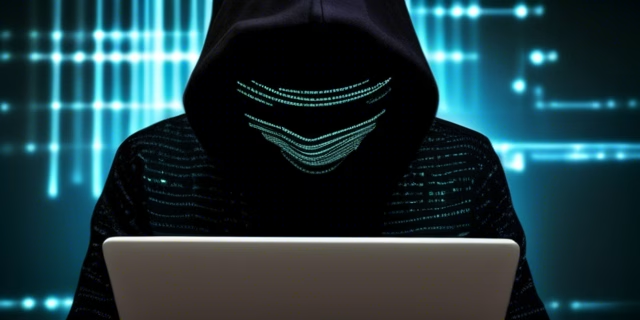Hacking and Unauthorized Access: Safeguarding Your Digital Rights
In the modern digital age, hacking and unauthorized access are among the most serious cybercrimes. With increasing dependence on technology for communication, business, and finance, cybercriminals exploit vulnerabilities in systems to steal sensitive information or disrupt operations. At Adarsh Singhal & Associates, we specialize in cyber law and provide comprehensive legal solutions to individuals and businesses affected by hacking and unauthorized access.
What is Hacking and Unauthorized Access?
- Hacking refers to the act of gaining unauthorized access to a computer system, network, or device with malicious intent. Hackers often exploit vulnerabilities in software or use deceptive tactics to breach security.
- Unauthorized Access involves accessing any digital platform or system without permission, even if no damage is caused. However, in most cases, unauthorized access leads to data theft, financial loss, or harm to the victim’s privacy and reputation.
Such crimes not only harm individuals but also compromise businesses and critical infrastructure, making legal action essential.
Common Types of Hacking and Unauthorized Access
Hacking takes various forms, each with unique methods and consequences:
- Phishing Attacks: Fraudulent emails or messages designed to trick individuals into revealing passwords, credit card information, or other sensitive data.
- Malware and Ransomware: Malicious software used to gain control of systems, steal data, or demand ransom in exchange for restoring access.
- Brute Force Attacks: Systematic attempts to guess passwords by trying multiple combinations until the correct one is found.
- SQL Injection: Exploiting database vulnerabilities to access or manipulate sensitive data.
- Man-in-the-Middle (MITM) Attacks: Intercepting communication between two parties to steal or alter information.
- Denial of Service (DoS) Attacks: Overloading a system to make it unavailable to users, often to disrupt operations or extort businesses.
Legal Provisions Against Hacking in India
India has strong laws under the Information Technology Act, 2000, and the Indian Penal Code (IPC) to address hacking and unauthorized access. Key legal provisions include:
- Section 43 of the IT Act: Penalizes unauthorized access, downloading, or copying of data, with liability for compensation to the victim.
- Section 66 of the IT Act: Covers hacking, prescribing imprisonment of up to 3 years and/or a fine of up to ₹5 lakh.
- Section 66B of the IT Act: Penalizes receiving stolen computer resources or communication devices, with imprisonment of up to 3 years and a fine of up to ₹1 lakh.
- Section 72 of the IT Act: Addresses breaches of confidentiality and privacy by individuals who misuse accessed information.
- IPC Section 378: Covers theft, including digital theft, as a punishable offense.
Victims can file complaints with the Cyber Crime Cell or their local police station for prompt investigation and action.
What to Do If You’re a Victim of Hacking
If you suspect that your system has been hacked or unauthorized access has occurred, take the following steps immediately:
- Secure Your Accounts: Change passwords for all compromised accounts and enable two-factor authentication.
- Disconnect Affected Devices: Disconnect devices from the internet to prevent further unauthorized access.
- Preserve Evidence: Document all suspicious activities, including unauthorized logins, emails, or messages.
- File a Complaint: Report the incident to the Cyber Crime Cell or local police.
- Consult Legal Experts: Reach out to Adarsh Singhal & Associates for legal guidance and representation.
How Adarsh Singhal & Associates Can Help
At Adarsh Singhal & Associates, we provide end-to-end legal support to victims of hacking and unauthorized access. Our services include:
- Filing Complaints: Assisting clients in drafting and filing complaints with the Cyber Crime Cell and police authorities.
- Investigative Support: Collaborating with forensic experts to gather evidence and trace perpetrators.
- Litigation: Representing clients in court to seek compensation or prosecute offenders under relevant laws.
- Data Protection Consultation: Advising businesses and individuals on cybersecurity measures to prevent future breaches.
- Incident Response: Guiding businesses on handling large-scale data breaches or ransomware attacks efficiently.
Our team combines legal expertise with a deep understanding of cybersecurity to deliver effective results.
Preventive Measures to Avoid Hacking
While legal action is crucial after an incident, prevention is always better. Here are some tips to safeguard yourself or your business:
For Individuals
- Use strong, unique passwords and update them regularly.
- Be cautious of suspicious emails or links, especially from unknown senders.
- Enable firewalls and antivirus software to protect your devices.
- Regularly back up your data to minimize losses in case of an attack.
For Businesses
- Invest in robust cybersecurity systems and encryption tools.
- Conduct regular vulnerability assessments and penetration testing.
- Train employees to recognize phishing attempts and other cyber threats.
- Establish incident response protocols to handle breaches swiftly.

